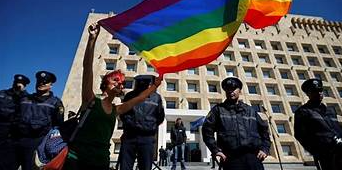Parliament passes initial approval for laws restricting LGBTQ rights, including bans on “propaganda” and nonheterosexual adoption.
On June 27, 2024, the Georgian parliament gave initial approval to a series of bills that would severely restrict the rights of LGBTQ individuals in the country. The proposed legislation, which is backed by the ruling Georgian Dream party, includes measures such as banning “LGBT propaganda,” prohibiting nonheterosexual people from adopting children, and restricting gender-transition surgeries.
The package of bills has sparked significant controversy, particularly as they target the visibility and rights of the LGBTQ community in Georgia. The legislation, if passed, would make it illegal to promote same-sex relationships in public or through media outlets. This would include banning public displays of the LGBTQ rainbow flag and preventing broadcasts that feature intimate scenes between same-sex couples.
The laws also propose restrictions on education, making it illegal to teach about LGBTQ rights in schools, which critics argue would isolate and further marginalize LGBTQ individuals in Georgia. The country’s Orthodox Church, which holds significant sway over public opinion, has expressed support for the measures, framing them as a defense of traditional values.
The bills still need to undergo two more readings before they can become law. Parliamentary speaker Shalva Papuashvili stated that the second and third readings would take place in the autumn, just ahead of the October 26 general election. He has defended the legislation, claiming it is necessary to combat what he calls the “LGBT propaganda” that is allegedly altering traditional societal values.
However, LGBTQ activists and rights organizations have strongly opposed the measures. Giorgi Tabagari, founder of Tbilisi Pride, stated that the bills would make life “unbearable” for LGBTQ Georgians, exacerbating the discrimination they already face. Tbilisi’s annual Pride march has been repeatedly targeted by conservative protesters, and polling shows significant public disapproval of same-sex relationships.
Georgia’s constitution already bans same-sex marriage, and the government’s push to further limit LGBTQ rights has raised concerns about the country’s commitment to human rights and democratic values. As the situation unfolds, LGBTQ advocates worry about increasing hostility and the potential for violence against the community if the legislation is fully enacted.

